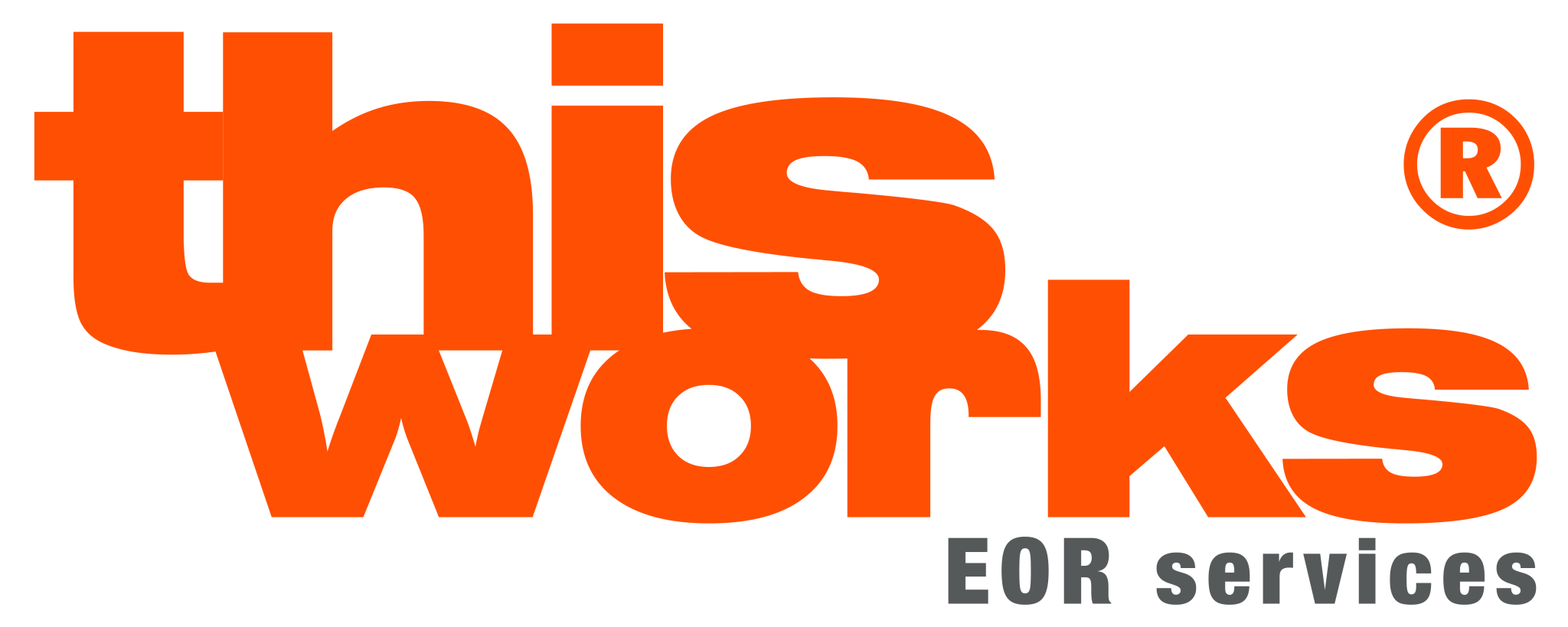
What does Conversion Salary mean? Benefits & Calculation Guide
Conversion salary definition refers to a compensation model that transforms variable or hourly pay into a predictable annual salary. This model is especially widespread in such spheres as IT, and sales, as many employees receive commissions, hourly wages, or performance bonuses. In essence, through these earnings, employers provide employees with cash and monetary relativity, which entails the ability to maintain a stable income level.
Understanding the salary conversion model is essential for both employees and employers. Employees understand the amount that they will receive at the end of the month, hence the ability to manage their finances. On the other hand, employers are in a position to reduce payroll complications and budget for their business.
In this blog, we’ll explore the conversion salary definition, explain how it is calculated, and discuss its advantages and drawbacks. We will also be able to compare conversion salary with other models of payment such as hourly wages and commissions. Finally, we will give recommendations on how to negotiate a conversion pay that will suit your pay requirements.
What is a Salary Conversion Model?
A conversion salary is the method of converting volatile earnings, including commissions, and hourly wages, into a fixed annual wage. Unlike traditional pay models where employees are compensated based solely on hours worked or sales performance, the salary conversion model provides a predictable and steady income. This means that employees of the organization will always be paid a certain amount of money per period regardless of the number of goods produced or the market price of the products.
Conversion salary definition highlights its primary benefit: stability. Employees are sure of their remuneration every year in order to plan for their financial needs. Employees also get to enjoy the benefits that include having easier payrolls to manage and compensation packages that are friendly to the employer’s budget estimates.
It is especially popular in sectors such as technology, sales, and particularly consulting because the payment is usually linked to performance. For instance, an employee who receives variable commissions for sales might prefer to receive a conversion salary for financial stability. Similarly, tech companies can apply this model for centralization of payment for independent contractors who convert into permanent employees.
By adopting the salary conversion model, businesses can attract top talent by offering security and predictability while still rewarding performance through other incentives like bonuses. It is a suitable approach given to employers and employees in various fast-growing organizations since it strikes a balance.

Conversion salary formula
The conversion salary formula gives a method by which it is possible to determine the fixed annual pay from the variable pay structure for instance hourly wages or commissions. This process helps employees receive stable wages while employers are provided with easier ways of making their payroll.
Step-by-Step Guide to Conversion Salary Formula
- Determine total earnings
The sum of all income for a given period. This may include wages per hour, commission, or a sum of money that is paid together with the basic wage on account of productivity.
Example: An employee who earns €25 per hour and who works 40 hours a week earns €1,000 per week.
- Choose the Conversion Period
Decide whether to calculate for an annual, monthly, or any other fixed periodicity that is to be followed for the calculations.
For annual salary: Divide the annual income by weekly standard and then multiply this figure by 52 (number of weeks in a year).
Example: €1000 per week × 52 weeks = €52 000 per year.
- Account for Variability
If the income fluctuates based on the season when one is working or sales performance, one should consider the average income over some time. To be incorporated into the projection are cases such as holidays, unscheduled time off, or working fewer hours.
- Add Benefits or Incentives
Take into consideration other incentives offered by the employer as part of the total cash compensation like health care, bonuses, retirement etc.
Example of Conversion Salary Formula calculation
Imagine a salesperson earning €4,000 monthly in commissions. To stabilize their pay, the employer uses a salary conversion model and calculates their annual earnings:
- €4,000 × 12 months = €48,000 annual salary.
If additional bonuses or benefits are included, this amount increases. For instance, a €2,000 annual performance bonus raises the total compensation to €50,000.
Tools for Calculation
- Online Salary Calculators: To estimate the conversion salaries you can use platforms like Glassdoor or Payscale. You can use these.
- Spreadsheets: For variable earnings, the candidate should enter the data in Excel or Google Sheets and forecast fixed annual salaries.
The concept of conversion salary assures the right, and set up a proper level that will suit both parties involved in employment hence providing stability for the remuneration. It makes financial planning easier and brings less risk for both sides.
Difference between Conversion Salary and Commission
A conversion salary and commission-based pay are two different systems of payment that are different in many ways. It is critical to distinguish between conversion salary and commissions so that the employer and employee can select the most appropriate type of compensation plan.
Conversion Salary
A conversion salary is a predetermined gross base pay based on a number of variable pay factors, including commission or hourly rate of pay. This model provides predictability by providing employees with consistent paychecks every fortnight, irrespective of sales or level of business. In other words, predictability is beneficial to employees, particularly in their ability to make financial decisions. Employers on their part enjoy the ease of managing the payroll and also the increased employee loyalty.
Commission-based Pay
On the other hand, commission-based pay is a clear association of remuneration packages to productivity levels. People are compensated through commission or commission plus a base salary, which means that there is no visible ceiling for earnings. This model ensures that employees work hard to meet their targets but can lead to fluctuating incomes, especially during off-peak seasons. Commissions are used in managerial positions together with sales to motivate high performance without a set monthly salary to pay.
Key difference between conversion salary and commission
- Stability vs. Incentives:
The salaries used in conversion are reliable in that they offer steady income to the employees.
The pay structure of commission-based compensation allows performance-related pay where employees are paid based on their effort.
- Applicability:
Conversion salary corresponds to job positions where there are regular payments needed, like in technology or consulting industries.
Commission is suitable for careers that have high productivity returns such as real estate and sales.
When to choose each model
An organization may opt for a salary conversion model where there exists a necessity for remunerating talent with fixed pay or where the company’s payroll system requires simplification. It is suitable to use commission-based pay when performance incentives are likely to bring about specific results.
The decision hinges on the organization, expectations from the employees, and the type of work done in an organization. While commissions help to motivate, a conversion wage provides a healthy mix of security and incentive pay, thus maintaining the best of both worlds.

Conversion salary advantages
The salary conversion model has the following advantages for the employees and employers, which makes it one of the most preferred strategies of compensation in most organizations. This plan of variable compensation solves the problem of stability, predictability, and operational efficiency by converting variable pay into an annual salary.
Conversion salary advantages for employees
- Predictable income:
The fixed salary eliminates situations when employees receive less money based on the number of tasks or sales they perform. This predictability is helpful in terms of financial planning and it helps to alleviate pressure.
- Stability:
There is increased security since employees do not go through the shock of receiving variable incomes due to fluctuations in customer frequency, weather, or other conditions.
- Career planning:
When the employees have fixed income then they are able to plan their career for the long term without having to worry about the amount of money they are earning in the short term. This stability can also result to higher job satisfaction among employees as they do not have to worry about their future employment prospects.
Conversion salary advantages for employers
- Better budget management:
Employers can predict payroll expenses more accurately, helping with long-term financial planning.
- Reduced turnover:
Offering stable compensation increases employee satisfaction and retention, reducing costs associated with frequent hiring and training.
- Simplified payroll:
Conversion salaries streamline payroll processes, eliminating the need to track commissions or variable hours.
Why choose the Salary Conversion Model?
The conversion salary advantages make it an attractive choice for roles requiring stability and long-term commitment. Employees feel secure, while employers gain predictability and loyalty from their workforce. This model fosters a balanced approach to compensation, benefitting both parties.
Conversion Salary in the tech industry
Conversion salaries in the tech industry are on the rise as firms seek to secure the best talent in the market. Silicon Valley tech jobs that are associated with contingent work such as project-based incentives or hourly rates appreciate conversion salaries that offer security and defined pay.
Large organizations, such as Google and Microsoft, exercise both fixed-pay structures and incentive systems. For instance, tech contractors transitioning to full-time roles often see their variable pay converted into annual salaries with additional benefits like stock options. This trend highlights the growing importance of the conversion salary in the tech industry, where stability and flexibility are key to attracting top talent.
This approach supports talent retention by offering the security of a fixed income while maintaining performance-based incentives. The conversion salary in the tech industry effectively balances employee satisfaction with employer cost predictability, making it a widely adopted model in this field.
Potential drawbacks of Conversion Salary
Although the conversion salary model has several advantages, it has some disadvantages as well. There is variability of income especially if there is a link between the salary and performance indicators, which is not good for one’s financial stability. Also, compensation through conversion often has limitations on how much one can earn in a given period, and this may not be attractive for highly performing individuals as they might earn more under a commission or hourly wage system.
To avoid these shortcomings, the following strategies have been provided; Employment and promotion, performance appraisal, and the provision of incentives such as bonuses to employees. Bonuses or stock options and other incentives may also assist in overcoming the drawback of fixed salary. It is thus crucial to mitigate these conversion salary disadvantages so as to have equity and employee engagement.
Conclusion
A Salary conversion model provides stability by transforming variable income into a predictable annual salary. It’s ideal for those valuing consistent pay and career planning. Evaluate your goals and preferences to decide if this model suits you. Understand how a conversion salary can shape your financial stability and career growth.
FAQs
- What does Conversion Salary mean?
A conversion salary takes an employee’s variable earnings like commission or hourly pay and sets up a regular annual wage. It offers stable income and makes it easy for employees to plan their income expenditure.
- How is the Conversion Salary calculated?
To arrive at conversion salary one has to add all the employee’s variable income for a given period (for instance one year) and then convert the resulting figure into an annual figure. Employers may also include things like bonuses or benefits.
- Why do companies use Conversion Salary Models?
Conversion salary models are in practice in companies as a means of providing secure wages, enhancing the morale of employees, and facilitating efficient processing of payrolls. It can also be used to get and keep the right people in the right jobs in those cases where the income has fluctuated in the past.
- What is the difference between Conversion Salary and Base Salary?
Base salary refers to a standard amount of pay that is received by an employee and a conversion salary is derived from fluctuating income such as from commissions or hourly wages. Conversion wages also present a fixed wage by putting down wages.
- How does Conversion Salary affect employee compensation?
These wages ensure steady income hence planning easier for employees. However, they may limit the employee’s earning capacity compared to other compensation structures such as commission or hourly wages.
- What are the benefits of a Conversion Salary for employees?
Conversion salaries provide financial stability, predictable paychecks, and the ability to plan long-term. Employees also benefit from reduced stress caused by fluctuating income.
Article Author – Gino Peters
Gino Peters is the Commercial Director at ThisWorks, with a rich history of nearly a decade in international payroll. Throughout his tenure, he has consistently kept abreast of evolving labor legislation, ensuring that ThisWorks remains at the forefront of industry knowledge. Beyond his vast expertise, Gino is deeply committed to advising and guiding clients and partners with precise insights. His leadership guarantees that all content and operations at ThisWorks meet the highest standards of clarity, accuracy, and compliance.
Follow him on Linkedin
Book a free consultation with Gino Peters






